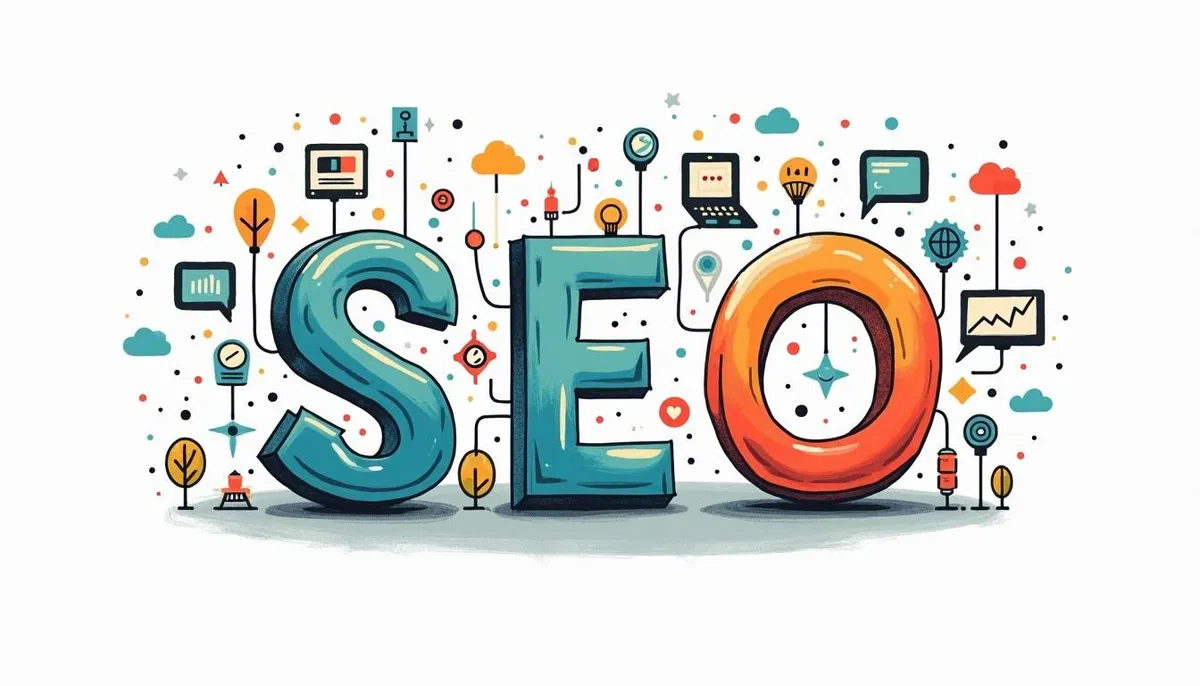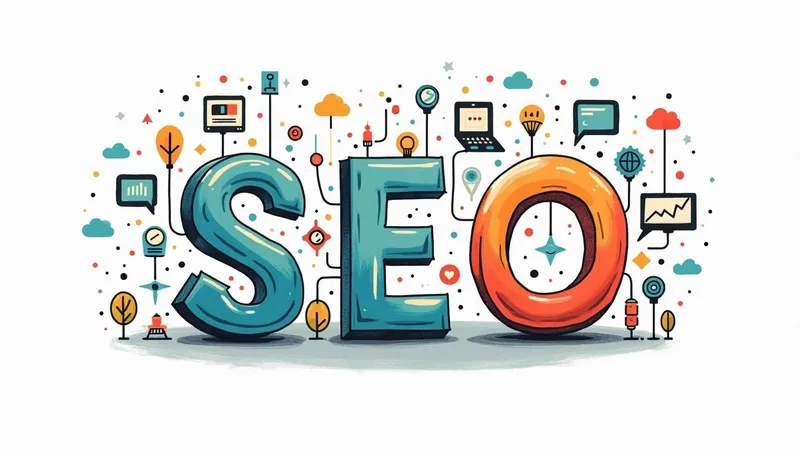Understanding SEO Meaning: A Comprehensive Guide
Discover the true meaning of SEO with our comprehensive guide. Learn key strategies, latest trends, and how to boost your rankings—start optimizing today! Imagine typing a question into Google and instantly finding the perfect answer on the first page. That's the power of SEO at work. But what exactly is SEO, and why does it matter so much? This guide breaks down the meaning of SEO and how it shapes the way websites get noticed online.
What does SEO stand for?
SEO stands for Search Engine Optimization. It's the practice of optimizing a website so that it ranks higher in search engine results pages (SERPs). When someone searches for something on Google, Bing, or another search engine, SEO determines whether your site appears at the top, somewhere in the middle, or buried deep in the results.
What Does SEO Stand For?
SEO stands for Search Engine Optimization. It's the practice of optimizing a website so that it ranks higher in search engine results pages (SERPs). When someone searches for something on Google, Bing, or another search engine, SEO determines whether your site appears at the top, somewhere in the middle, or buried deep in the results.
Think of SEO as the art and science of making your website more attractive to search engines. The goal is simple: increase visibility, drive organic traffic, and ultimately, connect with the right audience.
To achieve effective SEO, various strategies and techniques are employed, including keyword research, on-page optimization, and link building. Keyword research involves identifying the terms and phrases that potential visitors are searching for, allowing you to tailor your content to meet their needs. On-page optimization focuses on elements within your website, such as meta tags, headings, and content structure, ensuring that search engines can easily understand and index your site. Link building, on the other hand, is about acquiring backlinks from other reputable sites, which can enhance your site's authority and credibility in the eyes of search engines.
Moreover, SEO is not a one-time task but a continuous process that requires regular monitoring and adjustments. Search engine algorithms are constantly evolving, meaning that strategies that worked a few months ago may not be as effective today. Staying updated with the latest trends and best practices in SEO is crucial for maintaining and improving your site's ranking. Additionally, with the rise of mobile search and voice-activated queries, optimizing for user experience has become more important than ever, making it essential to consider how your site performs across different devices and platforms.
Why Is SEO Important?
Most online experiences begin with a search engine. Whether it's looking for a product, a service, or an answer to a question, people rely heavily on Google and similar platforms. If your site isn't optimized for search engines, it's like having a store in the middle of nowhere—no one will find it.
Good SEO leads to more visitors without paying for ads. It builds trust and credibility because users tend to trust sites that rank higher. Plus, SEO isn't just about search engines; it improves the overall user experience, making your site faster, easier to navigate, and more relevant.
Moreover, SEO is a long-term strategy that can yield sustainable results over time. Unlike paid advertising, which stops generating traffic the moment you stop funding it, a well-optimized website can continue to attract visitors for months or even years. This ongoing visibility not only enhances your brand's authority but also fosters a loyal customer base that returns to your site repeatedly. Additionally, as search engines evolve, so do SEO practices, meaning that staying updated with the latest trends can give you a competitive edge in your industry.
Another critical aspect of SEO is its ability to target specific audiences. By utilizing keyword research and understanding user intent, you can tailor your content to meet the needs of your ideal customers. This targeted approach not only increases the likelihood of attracting relevant traffic but also improves conversion rates, as visitors are more likely to engage with content that speaks directly to their interests and needs. Furthermore, local SEO strategies can help businesses connect with customers in their geographic area, making it easier for potential clients to find and choose your services over competitors.
How Search Engines Work
Crawling and Indexing
Search engines use bots, often called spiders or crawlers, to scan the internet. These bots visit web pages, follow links, and collect information about the content. This process is called crawling.
Once crawled, the information is stored in a massive database known as the index. Think of it as a giant library catalog where every web page is a book. When you search for something, the search engine looks through this index to find the most relevant pages. The efficiency of this process is crucial; with billions of web pages available, search engines must be able to quickly sift through vast amounts of data to deliver results in milliseconds. This is why search engines continuously update their crawling techniques to ensure they capture the latest content and changes on the web.
Moreover, the crawling process is not limited to just text. Search engines also analyze images, videos, and other multimedia content, using advanced algorithms to understand and categorize this information. This means that optimizing your multimedia elements, such as using descriptive alt text for images or providing transcripts for videos, can significantly enhance your visibility in search results.
Ranking Algorithms
After indexing, the search engine uses complex algorithms to rank pages. These algorithms consider hundreds of factors, including keywords, site speed, mobile-friendliness, backlinks, and user engagement. The exact formula is a closely guarded secret, but the goal is to present the best possible results to users.
Ranking isn't static; it changes based on updates to the algorithm and shifts in user behavior. That's why SEO requires ongoing effort and adaptation. For instance, as more users access the internet via mobile devices, search engines have placed greater emphasis on mobile-friendliness as a ranking factor. This shift has led many website owners to prioritize responsive design, ensuring that their sites provide a seamless experience across all devices. Additionally, the rise of voice search has prompted a reevaluation of keyword strategies, as users tend to phrase their queries differently when speaking compared to typing.
Furthermore, user engagement metrics, such as click-through rates and time spent on a page, are increasingly influencing rankings. Search engines aim to reward content that not only attracts clicks but also keeps users engaged and satisfied. This means that creating high-quality, relevant content that addresses user intent is more important than ever in the competitive landscape of search engine results.
Core Components of SEO
On-Page SEO
On-page SEO involves optimizing elements on your website itself. This includes using relevant keywords in titles, headers, and content. It also means structuring your site so that it's easy to navigate and making sure your pages load quickly.
Quality content is king here. Search engines reward pages that provide valuable, original, and well-written information. Proper use of meta tags, alt text for images, and internal linking also play a crucial role.
Off-Page SEO
Off-page SEO focuses on actions taken outside your website to improve its authority and reputation. The most important factor is backlinks—links from other reputable websites pointing to your site. These act like votes of confidence, signaling to search engines that your content is trustworthy and relevant.
Social media presence, influencer mentions, and online reviews can also impact off-page SEO. Building relationships and earning mentions naturally is more effective than trying to manipulate rankings with spammy links.
Technical SEO
Technical SEO ensures that search engines can crawl and index your site without issues. This includes optimizing site speed, ensuring mobile compatibility, creating an XML sitemap, and fixing broken links.
Security is part of technical SEO too. Using HTTPS encryption is now a standard ranking factor. A technically sound website lays the foundation for all other SEO efforts to succeed.
Keywords: The Heart of SEO
Keywords are the words and phrases people type into search engines. Choosing the right keywords means understanding your audience's language and intent. Are they looking to buy, learn, or compare? Matching your content to these intentions is crucial.
Keyword research tools help identify popular search terms and how competitive they are. Long-tail keywords—more specific phrases—often attract higher-quality traffic because they target users closer to making a decision.
Common SEO Techniques and Best Practices
Creating Valuable Content
Content that answers questions, solves problems, or entertains will naturally attract visitors. It's not about stuffing keywords but about providing real value. Regularly updating content keeps it fresh and relevant.
Optimizing for Mobile
With more people browsing on smartphones, mobile optimization is no longer optional. Responsive design, fast loading times, and easy navigation on small screens improve both user experience and rankings.
Improving Site Speed
Slow websites frustrate users and cause higher bounce rates. Compressing images, leveraging browser caching, and minimizing code can dramatically boost speed.
Building Quality Backlinks
Focus on earning links from authoritative sites in your niche. Guest blogging, partnerships, and creating share-worthy content are effective strategies. Avoid buying links or participating in link farms, which can lead to penalties.
Measuring SEO Success
SEO is not a one-time project but an ongoing process. Tracking performance helps you understand what's working and where to improve. Key metrics include organic traffic, keyword rankings, bounce rate, and conversion rates.
Tools like Google Analytics and Google Search Console provide detailed insights. Regular audits help identify technical issues and content gaps.
Common SEO Mistakes to Avoid
Ignoring SEO altogether is the biggest mistake. But even when trying, some common pitfalls can hurt your efforts:
- Keyword Stuffing: Overusing keywords makes content unreadable and can lead to penalties.
- Duplicate Content: Copying content from other sites or duplicating pages confuses search engines.
- Poor Mobile Experience: Neglecting mobile users means losing a large portion of traffic.
- Ignoring Analytics: Without tracking, you won't know what's effective or where to adjust.
The Future of SEO
Search engines are getting smarter with AI and machine learning. Voice search, visual search, and personalized results are changing how people find information. SEO strategies will need to evolve to focus more on user intent and experience rather than just keywords.
Staying informed and adaptable is key. Experimenting with new formats like video, podcasts, and interactive content can open fresh opportunities.

Wrapping Up
SEO is about making your website the best answer for search queries. It combines technical know-how, creative content, and strategic outreach. Understanding its meaning and components empowers anyone to improve their online presence.
Whether you're a business owner, marketer, or content creator, mastering SEO opens the door to reaching more people and growing your impact. Start with the basics, keep learning, and watch your site climb the search rankings.
Frequently Asked Questions
What does SEO stand for?
SEO stands for Search Engine Optimization. It's the practice of optimizing a website so that it ranks higher in search engine results pages (SERPs). When someone searches for something on Google, Bing, or another search engine, SEO determines whether your site appears at the top, somewhere in the middle, or buried deep in the results.
Why is SEO important?
SEO is important because most online experiences begin with a search engine. Good SEO leads to more visitors without paying for ads, builds trust and credibility, and improves the overall user experience. It's a long-term strategy that can yield sustainable results over time, unlike paid advertising which stops generating traffic when you stop funding it.
How do search engines work?
Search engines use bots called spiders or crawlers to scan the internet, visit web pages, follow links, and collect information. This process is called crawling. Once crawled, the information is stored in a massive database called the index. When you search, the search engine uses complex algorithms to rank pages based on hundreds of factors including keywords, site speed, mobile-friendliness, backlinks, and user engagement.
What are the core components of SEO?
The core components of SEO are: On-page SEO (optimizing elements on your website like keywords, titles, headers, and content), Off-page SEO (actions taken outside your website like building backlinks and social media presence), and Technical SEO (ensuring search engines can crawl and index your site, including site speed, mobile compatibility, and security).
What are common SEO mistakes to avoid?
Common SEO mistakes to avoid include keyword stuffing (overusing keywords), duplicate content (copying content from other sites), poor mobile experience (neglecting mobile users), and ignoring analytics (not tracking performance). The biggest mistake is ignoring SEO altogether.
Step-by-Step Guide
- 1
Understand what SEO stands for
SEO stands for Search Engine Optimization. It's the practice of optimizing a website so that it ranks higher in search engine results pages (SERPs). Think of SEO as the art and science of making your website more attractive to search engines.

- 2
Learn why SEO is important
Most online experiences begin with a search engine. Good SEO leads to more visitors without paying for ads, builds trust and credibility, and improves the overall user experience. It's a long-term strategy that can yield sustainable results over time.

- 3
Understand how search engines work
Search engines use bots called spiders or crawlers to scan the internet through crawling. Once crawled, information is stored in an index. When you search, the search engine uses complex algorithms to rank pages based on keywords, site speed, mobile-friendliness, backlinks, and user engagement.

- 4
Focus on core SEO components
Work on On-page SEO (optimizing elements on your website), Off-page SEO (building backlinks and social media presence), and Technical SEO (ensuring search engines can crawl and index your site properly).

- 5
Implement SEO best practices
Create valuable content that answers questions and solves problems. Optimize for mobile devices, improve site speed, and build quality backlinks from authoritative sites. Use keyword research tools to identify popular search terms.

- 6
Measure and track SEO success
Use tools like Google Analytics and Google Search Console to track organic traffic, keyword rankings, bounce rate, and conversion rates. Regular audits help identify technical issues and content gaps. Avoid common mistakes like keyword stuffing and duplicate content.


Web developer specializing in Astro and modern frontend technologies. Passionate about creating educational content.



